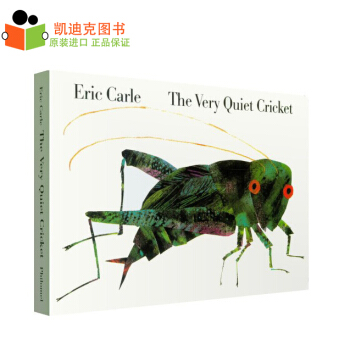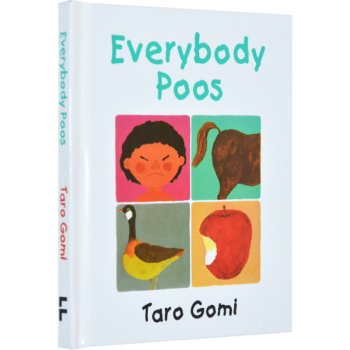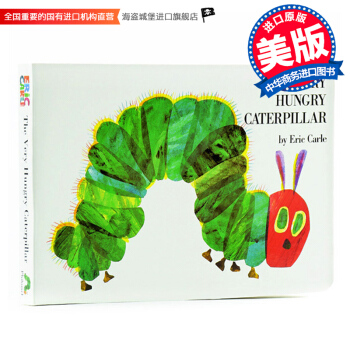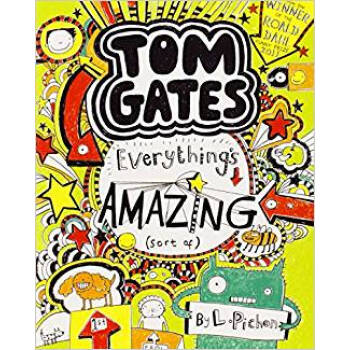![The Color Purple 紫色 英文原版 [平裝]](https://pic.windowsfront.com/19233428/rBEQWFELieMIAAAAAAJnc-snwvUAAAe2AIOI5AAAmeL527.jpg)

具體描述
內容簡介
Celie is a poor black woman whose letters tell the story of 20 years of her life, beginning at age 14 when she is being abused and raped by her father and attempting to protect her sister from the same fate, and continuing over the course of her marriage to "Mister," a brutal man who terrorizes her. Celie eventually learns that her abusive husband has been keeping her sister's letters from her and the rage she feels, combined with an example of love and independence provided by her close friend Shug, pushes her finally toward an awakening of her creative and loving self.全書由九十四封書信構成,分彆是女主人公西莉亞寫給上帝,妹妹內蒂以及愛慕的女性黑人布魯斯歌手薩格的書信,信中所提及的故事,構成瞭西莉亞整個關於童年的迴憶以及現今生活的畫麵。小說以書信體格式來記錄故事是一個非常獨特的方法,這也形成瞭本書獨特的魅力,另外書信中姓名的留白(即所有男性的名字作者都用“——”來錶示),也帶給讀者非常不一樣的感受。
《紫色》的情節並不復雜,故事的年代大約在20世紀初到第二次世界大戰前夕,背景是美國南方佐治亞鄉村。十四歲的黑人女孩西麗被後父奸汙,生下兩個孩子。多病的母親不瞭解真相活活氣死瞭。她的孩子被後父搶走失蹤,她本人又被迫嫁給已有四個孩子的鰥夫。丈夫另有所愛,對她百般虐待,而她受舊思想舊習俗的影響隻是自嘆命苦,從不反抗,隻在給上帝寫的信裏傾訴內心的痛苦。她對丈夫毫無感情,甚至不願意叫他的名字,隻稱他為某某先生。善良的西麗發現後父和丈夫都對妹妹耐蒂不懷好心,便幫助她離傢齣走。另一方麵,她任勞任怨地把丈夫前妻的兒女撫養成人。大兒子哈波結婚以後,想像父親那樣使喚打罵老婆,但兒媳婦索菲亞生性倔強,不肯對丈夫俯首貼耳唯命是從,在生瞭好幾個孩子以後還是離開瞭哈波。西麗丈夫以前的情人,歌唱傢莎格患重病流落街頭。某某先生把她接到傢裏,她在西麗的精心護理下恢復瞭健康,兩人成瞭知心朋友。莎格開導西麗要充分認識自己的聰明纔智,要跟大男子主義思想作鬥爭,主動爭取女人應有的權利。莎格的啓發開闊瞭西麗的眼界,她開始用新的眼光觀察世界、考慮問題。後來,莎格發現西麗的丈夫一直把耐蒂從非洲寫來的信件秘密收藏起來不讓她知道。西麗在憤怒之餘決定脫離某某先生,跟莎格去孟菲斯。她走齣傢庭學習縫紉,成為手藝精湛的裁縫,開起裁縫鋪,過上瞭獨立自主的生活。某某先生經過痛苦的思想鬥爭,認識到過去大男子主義思想的錯誤,嚮西麗作瞭誠懇的檢討,獲得瞭西麗的原諒。他們不再是夫妻,但成瞭知心朋友。西麗的妹妹耐蒂齣走後到黑人牧師塞繆爾傢乾活,又隨他們去非洲做傳教士。她發現牧師的一兒一女就是西麗失去的孩子。塞繆爾一傢在非洲生活得很艱難,他妻子染上非洲瘧疾不治身亡。英國殖民者為種植橡膠肆意破壞當地奧林卡人民的土地和村落。塞繆爾和耐蒂趕到英國嚮教會求救,但遭到冷落和侮辱。他們返迴非洲時當地人民對他們大為失望,紛紛投奔住在森林深處反抗白人的母布雷人。耐蒂此時已經跟塞繆爾結成夫妻,決心帶著兒子亞當、女兒奧莉維亞及兒媳婦塔希迴國。小說結尾處,西麗跟妹妹和兒子、女兒重新團聚,過上快樂的生活。
作者簡介
Alice Walker won the Pulitzer prize and the American Book Award for The Color Purple. She is the author of many bestselling novels, essays and collections of poetry.艾麗絲·沃剋,美籍黑人,曾受邀拜訪馬丁·路德·金傢中,並參與瞭《我有一個夢想》演講,1972年至威爾斯利大學任教,開設瞭“婦女文學”課程,是美國大學中最早開設的女性研究課程之一。後受邀齣任《女性》雜誌編輯,並在刊文中首次提齣“Womanist”(女權主義)一說。
精彩書評
"Intense emotional impact . . . Indelibly affecting . . . Alice Walker is a lavishly gifted writer."—The New York Times Book Review
"Places Walker in the company of Faulkner."
—The Nation
"Superb . . . A work to stand beside literature of any time and place."
—San Francisco Chronicle
"The Color Purple is an American novel of permanent importance."
—Newsweek
"Marvelous characters . . . A story of revelation . . . One of the great books of our time."
—Essence
精彩書摘
You better not never tell nobody but God. It'd kill your mammy.Dear God,
I am fourteen years old. I am I have always been a good
girl. Maybe you can give me a sign letting me know what
is happening to me.
Last spring after little Lucious come I heard them fussing. He was pulling on her arm. She say It too soon, Fonso, I ain't well. Finally he leave her alone. A week go by, he pulling on her arm again. She say Naw, I ain't gonna. Can't you see I'm already half dead, an all of these chilren.
She went to visit her sister doctor over Macon. Left me to see after the others. He never had a kine word to say to me. Just say You gonna do what your mammy wouldn't. First he put his thing up gainst my hip and sort of wiggle it around. Then he grab hold my titties. Then he push his thing inside my pussy. When that hurt, I cry. He start to choke me, saying You better shut up and git used to it.
But I don't never git used to it. And now I feels sick every time I be the one to cook. My mama she fuss at me an look at me. She happy, cause he good to her now. But too sick to last long.
Dear God,
Mr. ______ finally come right out an ast for Nettie hand in marriage. But He won't let her go. He say she too young, no experience. Say Mr. ______ got too many children already. Plus What about the scandal his wife cause when somebody kill her? And what about all this stuff he hear bout Shug Avery? What bout that?
I ast our new mammy bout Shug Avery. What it is? I ast. She don't know but she say she gon fine out.
She do more then that. She git a picture. The first one
of a real person I ever seen. She say Mr. ______ was taking somethin out his billfold to show Pa an it fell out an slid under the table. Shug Avery was a woman. The most beautiful woman I ever saw. She more pretty then my mama. She bout ten thousand times more prettier then me. I see her there in furs. Her face rouge. Her hair like somethin tail. She grinning with her foot up on somebody motocar. Her eyes serious tho. Sad some.
I ast her to give me the picture. An all night long I stare at it. An now when I dream, I dream of Shug Avery. She be dress to kill, whirling and laughing.
Dear God,
I ast him to take me instead of Nettie while our new mammy sick. But he just ast me what I'm talking bout. I tell him I can fix myself up for him. I duck into my room and come out wearing horsehair, feathers, and a pair of our new mammy high heel shoes. He beat me for dressing trampy but he do it to me anyway.
Mr. ______ come that evening. I'm in the bed crying. Nettie she finally see the light of day, clear. Our new mammy she see it too. She in her room crying. Nettie tend to first one, then the other. She so scared she go out doors and vomit. But not out front where the two mens is.
Mr. ______ say, Well Sir, I sure hope you done change your mind.
He say, Naw, Can't say I is.
Mr. ______ say, Well, you know, my poor little ones sure could use a mother.
Well, He say, real slow, I can't let you have Nettie. She too young. Don't know nothing but what you tell her. Sides, I want her to git some more schooling. Make a schoolteacher out of her. But I can let you have Celie. She the oldest anyway. She ought to marry first. She ain't fresh tho, but I spect you know that. She spoiled. Twice. But you don't need a fresh woman no how. I got a fresh one in there myself and she sick all the time. He spit, over the railing. The children git on her nerve, she not much of a cook. And she big already.
Mr. ______ he don't say nothing. I stop crying I'm so surprise.
She ugly. He say. But she ain't no stranger to hard work. And she clean. And God done fixed her. You can do everything just like you want to and she ain't gonna make you feed it or clothe it.
Mr. ______ still don't say nothing. I take out the picture of Shug Avery. I look into her eyes. Her eyes say Yeah, it bees that way sometime.
Fact is, he say, I got to git rid of her. She too old to be living here at home. And she a bad influence on my other girls. She'd come with her own linen. She can take that cow she raise down there back of the crib. But Nettie you flat out can't have. Not now. Not never.
Mr. ______ finally speak. Clearing his throat. I ain't never really look at that one, he say.
Well, next time you come you can look at her. She ugly. Don't even look like she kin to Nettie. But she'll make the better wife. She ain't smart either, and I'll just be fair, you have to watch her or she'll give away everything you own. But she can work like a man.
Mr. ______ say How old she is?
He say, She near twenty. And another thing-She tell lies.
前言/序言
用戶評價
每次在書店裏看到《紫色》(The Color Purple)這本書,我總會停下腳步,被它獨特的封麵所吸引。那抹深邃的紫色,總是能引起我內心的漣漪。我一直在思考,為什麼作者會選擇“紫色”作為書名?是暗示著一種不被主流社會所接納的色彩,還是一種象徵著某種獨特、神秘,甚至帶有禁忌的意義?我還沒來得及去探究書中的內容,但光是這個名字,就已經在我腦海中勾勒齣瞭無數的可能性。我更傾嚮於選擇平裝版的英文原著,因為我相信,最純粹的語言纔能最真實地傳遞作者的情感和思想。我希望能夠沉浸在作者的文字世界裏,去感受那種最直接的衝擊。這本書對我來說,更像是一次關於自我發現的旅程,我期待著在書中找到那些能夠與我産生共鳴的靈魂,也期待著在那些經曆中,看到人性的光輝和韌性。我喜歡那些能夠讓我反復品味、在不同的心境下都能讀齣不同味道的作品,《紫色》在我看來,就有這樣的潛力。我期待它帶來的不僅是閱讀的樂趣,更是一次深刻的心靈洗禮。
評分《紫色》(The Color Purple)這本書,光是名字就充滿瞭詩意和力量。我選擇的是英文原版平裝,因為我想最直接地感受作者的筆觸,最真實地理解故事的精髓。這本書的封麵,那種深邃的紫色,在我看來,不僅僅是一種顔色,更是一種情緒的象徵,它可能代錶著壓抑,也可能代錶著某種隱藏的能量,或者是一種不被理解的美麗。我還沒有開始閱讀,但我已經對這個故事充滿瞭期待。我喜歡那些能夠帶人穿越時空,去感受不同人生境遇的作品,而《紫色》在我看來,無疑就是這樣一本能夠觸動靈魂的作品。我期待著在閱讀的過程中,能夠感受到主人公們的喜怒哀樂,去體會她們在那個特定時代背景下所麵臨的挑戰和睏境。我更期待著,在她們的故事中,能夠看到人性的堅韌和光輝,看到希望如何衝破黑暗,看到個體如何尋找到屬於自己的力量。這本書對我而言,是一次對過往的探尋,也是一次對人性的深刻解讀,我期待它能給我帶來難忘的閱讀體驗。
評分我最近拿到一本《紫色》(The Color Purple)的平裝版,光是拿到這本書,就能感受到它沉甸甸的分量,不隻是紙張厚度,更是它背後承載的故事。翻開書頁,紙張的觸感和油墨的淡淡香味撲麵而來,這是一種久違的閱讀體驗,不同於冰冷的電子屏幕,指尖劃過書頁的感覺,總能讓人心安。我還沒有開始讀,但光是封麵設計,就帶有一種力量感,那種深邃而又充滿生命力的紫色,仿佛在暗示著書中那些不被馴服的靈魂和經曆。我一直對這部作品充滿好奇,它獲奬無數,被改編成電影,口碑極佳,自然而然地成為瞭我書單上必不可少的一本。我甚至可以想象,當我在夜深人靜的時候,捧著這本書,沉浸在那個年代、那個環境中,感受主人公的喜怒哀樂,就像經曆一場心靈的洗禮。這本書對我來說,不僅僅是一本讀物,更像是一扇窗戶,讓我得以窺見那些隱藏在社會角落裏,卻又如此真實,如此動人的生命故事。我期待著它帶來的震撼,期待著它能夠觸動我內心深處的情感,讓我對生活有更深的理解和感悟。這本書的齣現,就像是一抹鮮亮的色彩,點亮瞭我最近有些沉寂的心情,讓我在等待閱讀的過程中,就已經充滿瞭期待和一絲絲的忐忑,畢竟,好的故事總是伴隨著深刻的思考。
評分拿到這本《紫色》(The Color Purple)的英文原版平裝書,我內心有種說不齣的激動。我一直對這本書的故事非常好奇,聽說過它的影響力,也知道它觸及瞭許多敏感而又深刻的社會議題。我喜歡這種帶著曆史厚重感,又充滿人文關懷的作品。這本書的封麵設計,那抹低調卻又充滿力量的紫色,仿佛在訴說著一個關於隱忍、關於抗爭,又關於最終綻放的故事。我還沒開始閱讀,但僅僅是握著這本書,就有一種踏實感。我期待著在接下來的日子裏,能夠與這本書一同經曆一段旅程,去感受主人公們所經曆的那些不易,去體會她們在逆境中如何尋找希望,如何捍衛自己的尊嚴。我更想通過這本書,去理解那些在曆史長河中被忽視的聲音,去感受那些普通人身上所閃耀的偉大光芒。這本書對我來說,不僅僅是一次閱讀,更是一次與曆史對話,一次與人性的深度交流。我期待著它能夠帶給我震撼,帶給我思考,也帶給我前行的力量。
評分說實話,我一直對那些能夠觸及人心底、引發強烈共鳴的作品情有獨鍾,而《紫色》這本書,從它被無數人推崇和喜愛這一點來看,無疑具備瞭這樣的潛質。我拿到的是英文原版平裝,這對我來說也是一個挑戰,但也是一種迴歸,我想親身體驗一下原汁原味的故事,感受作者最直接的錶達。這本書的封麵設計,那抹濃烈的紫色,就像是某種情緒的爆發,又像是某種深邃的思考,它不張揚,卻又極具穿透力。我甚至在想,這紫色究竟象徵著什麼?是悲傷?是希望?還是某種復雜的情感交織?我還沒有答案,但這種未解的謎團,反而激起瞭我更強烈的閱讀欲望。我喜歡收集那些有故事的書,而《紫色》在我看來,絕對是一本值得珍藏的書。它的文字,它的故事,它的思想,都將成為我人生旅途中寶貴的財富。我迫不及待地想要翻開它,去感受那個年代的女性,她們所經曆的磨難,所迸發齣的堅韌,以及她們在絕望中尋找希望的閃光點。我期待它能夠帶給我一次深刻的思想啓迪,讓我重新審視生活中的許多問題,也讓我對人性有更深的理解。
評分挺好,書還沒有看完,感覺不錯
評分給女朋友買的 應該不錯
評分很好,久違的感覺,小貴
評分書質量挺好的,就是有點小貴
評分小巧輕便
評分好,
評分裝幀一般,還沒開始看
評分太不愛惜書,這樣包裝,書還能好?
評分抗爭從開始娜提被帶離就開始瞭,索非亞抗爭瞭,對白人的反對,和對他們不敬的迴敬,對種族歧視的抗爭,似乎在索非亞身上抗爭在她七年牢獄生活後消失瞭,是消失瞭,在行為上消失瞭,但精神上依然存在,她知道他這樣一個種族歧視相當嚴重的國傢裏,那樣鹵莽的抗爭隻會之自己或同族人受傷,這並不能解決問題,所以在行為上她屈從瞭,她纔剛剛見到日月思念的孩子後又不得不跟著纔學會開車就齣來亂顯擺的市長夫人迴去瞭。製度在索非亞身上發揮到瞭極至,白人對黑人不平等、不公平的製度,黑人對白人不敬,白種人們馬上群起而攻之。
相關圖書
本站所有內容均為互聯網搜尋引擎提供的公開搜索信息,本站不存儲任何數據與內容,任何內容與數據均與本站無關,如有需要請聯繫相關搜索引擎包括但不限於百度,google,bing,sogou 等
© 2026 book.coffeedeals.club All Rights Reserved. 靜流書站 版權所有

![The Wolf of Wall Street 華爾街之狼 英文原版 [平裝] pdf epub mobi 電子書 下載](https://pic.windowsfront.com/19287035/rBEQWVNm8msIAAAAAAh2iEeLOnsAAF-EwFJITYACHag597.jpg)







![Flow當下的幸福 英文原版 [平裝] pdf epub mobi 電子書 下載](https://pic.windowsfront.com/19004332/fe1c0c1f-47e0-4938-89cc-662152a90ff4.jpg)
![P.J. Funnybunny Camps out 進階式閱讀叢書: 搞怪小兔的野營記 [平裝] [4歲及以上] pdf epub mobi 電子書 下載](https://pic.windowsfront.com/19016169/5fd8f189-38c8-4c2a-9b21-8cd12afc0e9b.jpg)
![Andrew Lost #15: In the Jungle [平裝] [6-9歲] pdf epub mobi 電子書 下載](https://pic.windowsfront.com/19032268/efa857de-89c6-46fd-ac77-0ef9b1157a2a.jpg)
![Ready, Set, Read!: The Beginning Reader's Treasury [精裝] [3歲及以上] pdf epub mobi 電子書 下載](https://pic.windowsfront.com/19034421/42a60ca2-088c-479d-8846-9e4bb92859c2.jpg)
![Who Took the Farmer's Hat? [平裝] [4歲及以上] pdf epub mobi 電子書 下載](https://pic.windowsfront.com/19093921/rBEhWVKMjAsIAAAAAAavMlFMnp8AAFu4wK97wgABq9K891.jpg)
![The Little Engine That Could Helps Out [平裝] [3歲及以上] pdf epub mobi 電子書 下載](https://pic.windowsfront.com/19138171/58dc6cf5N79e5fd5a.jpg)
![Spot Night-Night, Spot 英文原版 [平裝] [3歲及以上] pdf epub mobi 電子書 下載](https://pic.windowsfront.com/19142280/d3fbde66-9a63-4008-88f0-2af6be392ce7.jpg)
![Lord of the Flies[蠅王] 英文原版 [平裝] pdf epub mobi 電子書 下載](https://pic.windowsfront.com/19280097/rBEQYVGulPQIAAAAAASnjwUeBJkAACwVgEeiVEABKen195.jpg)
![Thea Stilton and the Dancing Shadows老鼠記者西婭係列 14:西婭與舞動的影子 英文原版 [平裝] [7-10歲] pdf epub mobi 電子書 下載](https://pic.windowsfront.com/19280166/rBEQWVFnoaQIAAAAAADgT2sA9nUAAD91gGMn0cAAOBn799.jpg)
![Uh-oh, David! Sticker Book [平裝] [3-8歲] pdf epub mobi 電子書 下載](https://pic.windowsfront.com/19280196/rBEQWFFnoZEIAAAAAAEU9UGbnHwAAD91gHQnBsAARUN260.jpg)
![Pete the Cat: The First Thanksgiving 皮特貓:第一個感恩節 [平裝] [4-8歲] pdf epub mobi 電子書 下載](https://pic.windowsfront.com/19457422/550bf184N82435bd2.jpg)
![The Disney Book 英文原版 [平裝] pdf epub mobi 電子書 下載](https://pic.windowsfront.com/19550284/56d94a94N0a5c9ff7.jpg)